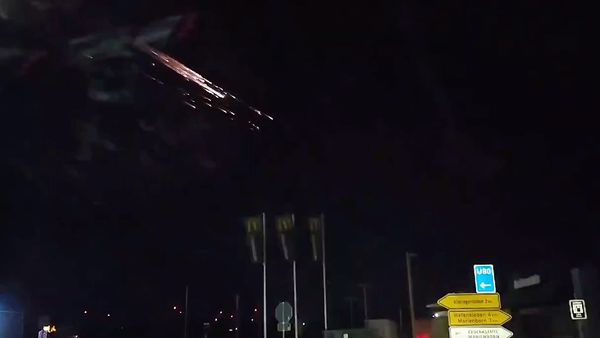
For 20 years squatters campaigned for an armed force to go with them into the bush and clear the land of its Aboriginal owners. The big wool men cajoled and threatened three governors until they got their way.
The Native Police began killing in the hinterland of the Darling Downs in 1848. My great-great-grandfather, Reg Uhr, and his brother, D’arcy , were officers in the force a few years later as it fought the bloodiest campaigns on the Queensland frontier.
The records of the Native Police are missing, presumed destroyed, but modern scholars calculate that over the 60 years these Aboriginal troopers led by white officers slaughtered upwards of 40,000 people from the northern rivers of New South Wales all the way to Cape York.
Those who still defend the massacres of those years say people were different then. If only that were so. Pare away the 19th-century rhetoric and the hatred and greed that drove those killings can be seen driving race politics in today’s Australia – more clearly than ever since the sluice gates were opened in the referendum campaign.
No one is excusing massacres now – Native Police riding all guns blazing into a sleeping camp at dawn – but the attitudes of the massacre times are with us still.
Before I began writing Killing for Country, I thought virtue signalling was an insult invented in the culture wars by Republican thinktanks. But in the Sydney press in the 1830s it was doing the same work it does now – belittling decent people who stand up to cruelty and injustice.
The Sydney Herald mocked “wailers after Aborigines” as “desirous of acquiring a reputation for humanity”. It denounced “philanthropists, who sit at ease at home to talk and write of the ‘poor aborigines’ … and look upwards, praying pardon for those who are engaged in the work of exterminating a people from the face of the earth. Why, it is in the order of nature that, as civilization advances, savage nations must be exterminated sooner or later.”
As one war was fought on the frontier, another was fought in town – between those newspapers supporting the squatters and those condemning the slaughter. Bishops didn’t give the sheep men much trouble in the press or the pulpit. They found endless reasons for the land being taken from its original owners.
The voices the squatters set out to silence were those of editors, writers and journalists who from decade to decade continued to attack the slaughter in the bush. The attack in reply is infinitely familiar still. After virtue signalling comes the accusation of groupthink.
“It is quite evident that the sentimentality and ravings of a parcel of European ‘canters’ have had their effect on the minds of many mistaken men in this Colony,” wrote the squatter’s trumpet, the Sydney Herald. Such deluded creatures “lament over a slain savage, while they disregard the safety of the lives and property of the white inhabitants! But is not this spurious humanity? Is it not moral injustice?”
The claim the bush knows best shapes contemporary Australian politics profoundly. And it’s as old as New South Wales. The squatters demanded city folk shut up because they could never know the challenges of the bush. Those who dared back then to call the killings murder were dismissed as “humbugging maniacs and hypocrites who write and prate of matters of which they know nothing whatever”.
On the frontier, the law counted for nothing for most of the century. Squatters were left to do what they felt needed to be done. That sense of standing to one side of the law hasn’t disappeared in the bush. There are laws but there are needs – say if you want to blow up a gorge or clear native vegetation or drain the Murray Darling.
The meanness of the squatters is with us still. They were taking every square inch of the lands of the native peoples, giving nothing back for the territory on which they now made their fortunes. But they howled if a little government revenue found its way into Aboriginal hands.
When the Imperial government sent out a band of men to be “Protectors of the Aborigines” – to live among them, learn their languages and be advocates in their disputes with settlers – the squatters condemned the plan as impractical, ultra-humane, proof of London’s ignorance and, above all, expensive, for the colony was footing the bill.
The Sydney Gazette called this “a piece of downright-jobbery” and joined the squatter press condemning the scheme as “one of those disgraceful channels through which the public money is drained into the pockets of a parcel of greedy sinecurists”. And of course, the money was said to achieve nothing: “The Protectors of the blacks of New Holland might as well be the protectors of the Esquimaux, for all the good they do.”
Forget the protectors and rejig the rhetoric a little and that argument lies at the core of the no case, repeated every day in this long referendum campaign – that billions are being wasted year after year on ungrateful Aborigines with nothing to show for it.
How little these people have changed.
Paying to police the blacks has always been another matter. Revenue for welfare was unthinkable. But the colony shouldering the cost of the Native Police – £318,278 by 1880 – was not. In cash-strapped Queensland, that was a fortune.
When Queensland broke away from NSW, the Native Police moved north. Any restraint the force had shown in its early years was stripped away. No law was ever passed to sanction its killings. It was openly acknowledged they were not police but a semi-military force – indeed the armed wing of the Queensland government.
Summoned by squatters, white officers like my great-great-grandfather rode out with eight or 10 Aboriginal troopers to revenge the spearing of a cow, the death of a shepherd – many died on the frontier – or to disperse peaceful gatherings of blacks squatters feared might get out of hand.
A note on the language: to “disperse” meant shoot to kill. Newspapers often put the word in inverted commas to make the meaning absolutely plain. Other euphemisms for slaughter included “swift justice” and “few bullets were fired in vain”.
The Native Police dealt with their victims in the bush. Only rarely were prisoners brought in for trial. Courts were so pedantic: they asked for proof of wrongdoing. That didn’t worry the Native Police. They killed anyone they could find. Guilty or innocent, their deaths were thought to teach the rest a lesson.
From among the survivors of these massacres, the troopers took women for themselves and the officers kidnapped children who ended up as servants – or worse – in white households. Despite loud and long complaints, kidnapping of Aboriginal children continued into the 20th century unpunished in Queensland.
Protests led to inquiries. This is where we honed our national skill in ventilating disgust without taking any useful action. In the first century of settlement, inquiries were held into everything agitating the colonists – from bushrangers to scab in sheep. But no issue was inquired into so often as the condition of the Aboriginal people and the workings of the Native Police.
So appalling was the behaviour of the Native Police in early Queensland that the government was compelled to hold an inquiry into the force in 1861. It was expertly hobbled. The terms of reference were vague. Sitting on the committee were seven squatters who between them held more than 1.4m hectares (3.5m acres) in the bush. The Native Police officers lied. Everyone was exonerated.
How little things change.

Australians are beginning to face the question of what it does to the soul of a country that its foundations rest first in conquest and then in crime. I hear those crimes being defended in the referendum debate as the yes campaign is condemned as woke, ignorant and expensive – while the voice is attacked as a privilege Aboriginal Australians don’t deserve.
Behind it all I hear old familiar voices growling that nothing is owed to the native peoples of Australia, nothing at all for the continent we took from them. Absolutely nothing.
Killing for Country, a Family Story by David Marr is out now through Black Inc







